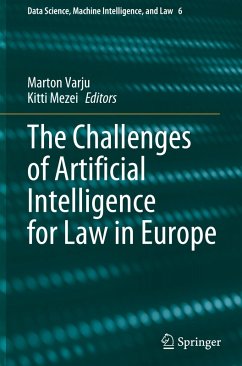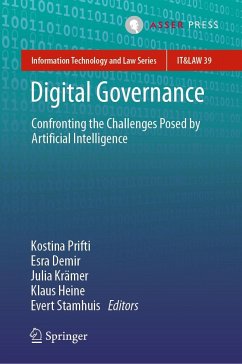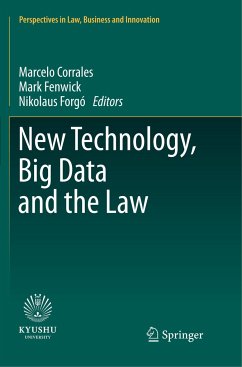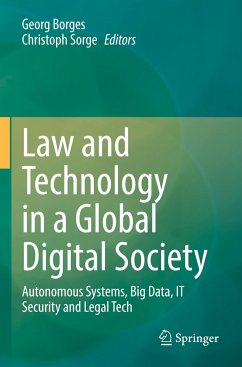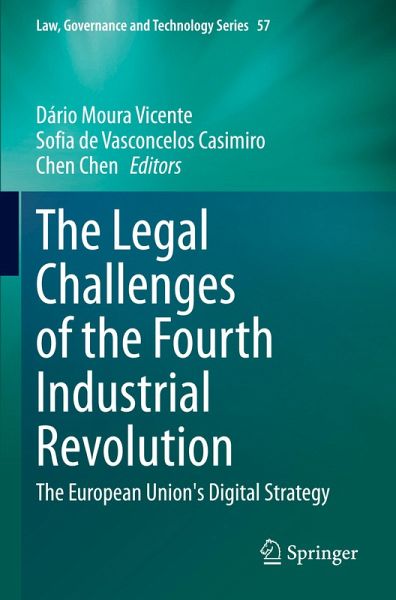
The Legal Challenges of the Fourth Industrial Revolution
The European Union's Digital Strategy
Herausgegeben: Moura Vicente, Dário; de Vasconcelos Casimiro, Sofia; Chen, Chen
Versandkostenfrei!
Versandfertig in 6-10 Tagen
151,99 €
inkl. MwSt.

PAYBACK Punkte
76 °P sammeln!
This book explores the concept of a fourth industrial revolution as an expression of the current technological, economic, and social changes sparked by the growing interconnectivity and intelligent automation that have emerged in the 21st century. It seeks to identify and explain the legal challenges posed by this phenomenon in four main areas: content, economy, security, and people.Part I, Content, considers e.g. the problems posed by new uses of protected works in the digital environment, and the new rules on liability for intermediary services contained in the Digital Services Act.Part II, ...
This book explores the concept of a fourth industrial revolution as an expression of the current technological, economic, and social changes sparked by the growing interconnectivity and intelligent automation that have emerged in the 21st century. It seeks to identify and explain the legal challenges posed by this phenomenon in four main areas: content, economy, security, and people.Part I, Content, considers e.g. the problems posed by new uses of protected works in the digital environment, and the new rules on liability for intermediary services contained in the Digital Services Act.Part II, Economy, is particularly concerned with the regulation of Big Tech in the EU's Digital Markets Act, ecommerce and EU consumers' rights, the taxation of online platforms, and digital advertising.Part III, Security, addresses the European Union Strategy for Cybersecurity, the use of biometric data systems and facial recognition technologies for law enforcement purposes, and the security implications of the Proposal for an EU Regulation on Artificial Intelligence, as well as the challenges entailed by the European Union's positioning itself as a major cyber defence actor.Part IV, People, discusses the Data Protection Litigation System under the GDPR, the right to disconnect from work, the proposed EU Catalogue of Fundamental Digital Rights, the countering of terrorist propaganda online through the TERREG and the DSA, and AI and Fundamental Rights.









